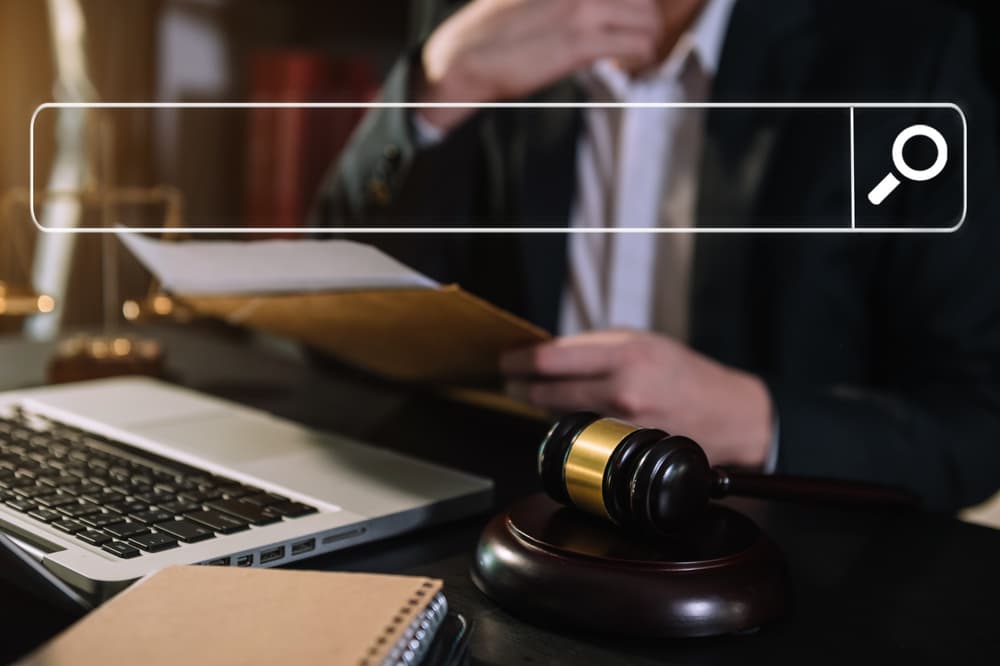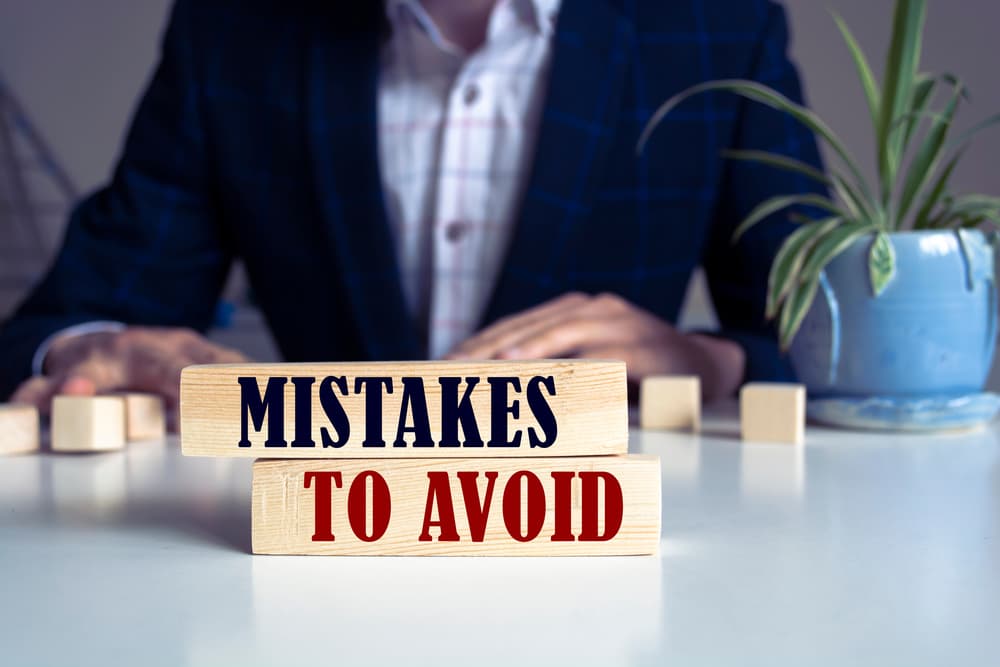For every injured person, the decision to hire a Atlanta personal injury lawyer may be the best decision they will make after getting injured. An attorney will work on your case and offer valuable guidance throughout the legal process, allowing you the time to rest and recover.
However, with so many law firms practicing personal injury law, choosing a lawyer may feel daunting.
Fortunately, the process becomes less daunting and more manageable when you know what steps to follow and what questions to ask a prospective attorney.
A Step-by-Step Guide to Choosing a Personal Injury Lawyer

If you have suffered an injury and are looking for an attorney to pursue financial compensation, you must follow these eight easy steps to find the ideal fit for your personal injury case.
Gather Recommendations
Gathering recommendations is one of the best ways to start your search for a lawyer. Talk to your friends, family members, coworkers, or anyone within your network who may have had similar experiences.
Personal referrals often provide trustworthy insights into an attorney’s capabilities and professionalism.
- Bonus point: Don’t stop with your immediate network. Online forums and social media groups focused on legal advice can also be excellent sources for recommendations.
Research Potential Candidates Online
Once you have a list of recommended lawyers, the next step is to research them online. A simple Google search can reveal all the information you need to decide. Look at their websites, read client reviews, and check their social media profiles.
Pay attention to the content they share, as this can give you an idea of their knowledge and experience in personal injury law.
- Bonus point: Websites like Avvo, Martindale-Hubbell, and Super Lawyers are also excellent resources for finding client testimonials and peer reviews.
Look for a Candidate’s Accreditations
Accreditations and memberships in professional organizations can be strong indicators of a lawyer’s credibility. Check if the prospective lawyers are members of reputable organizations such as the American Bar Association (ABA), state bar associations, or specialized groups like the American Association for Justice (AAJ).
These memberships often require meeting certain standards and demonstrating a commitment to staying updated with the latest legal practices and continuing education.
- Bonus point: Some lawyers may have board certifications in personal injury law, indicating their advanced experience and a higher standard of practice.
Look at Evidence of Experience
Look for lawyers who have a proven track record in handling cases similar to yours. You can often find this information on their websites or through legal directories. Pay attention to the types of cases they have handled and their success rates.
A lawyer with extensive experience in personal injury law is more likely to understand the nuances of your case and develop an effective strategy to secure a favorable outcome.
- Bonus point: Lawyers who publish articles or case studies on personal injury law topics demonstrate even more knowledge.
Schedule Consultations
Once you have a short list of attorneys you’d like to talk to, schedule consultations with the potential candidates. Most personal injury attorneys offer free initial consultations, which provide a valuable opportunity to discuss your case and evaluate the lawyer’s approach.
- Bonus point: Prepare a list of questions covering their experience, strategy for your case, expected timelines, and potential outcomes. This structured approach ensures you cover all your bases.
Assess Communication and Comfort Level

Any attorney-client relationship requires effective communication. During your consultations, assess how well the lawyer communicates complex legal concepts in a way that you can understand. Additionally, consider your comfort level with the lawyer.
Personal injury cases can take a long time, so choose someone you feel comfortable with and trust to have your best interests at heart.
- Bonus point: Pay attention to how quickly the lawyer or their team responds to your initial inquiry. Rapid response times can indicate a high level of client service.
Discuss Fees and Costs
Understanding the fee structure is essential when choosing an attorney. Most personal injury lawyers work on a contingency fee, so you only pay them if you win the case. However, discuss the specifics, such as the percentage they will take from the settlement and any additional costs you might incur.
- Bonus point: Always get the fee agreement in writing to avoid surprises or misunderstandings later. This document should outline all potential costs and the lawyer’s share of the settlement.
Make Your Decision
After gathering recommendations, conducting research, and consulting with potential candidates, it’s time to decide. Choose a lawyer with the right qualifications who makes you feel confident and comfortable. Remember that the right lawyer should genuinely care about your case and commit to fighting for the best possible outcome.
- Bonus point: If you’re torn between candidates, don’t hesitate to seek a second or third opinion. Find a lawyer you’re entirely comfortable with.
Mistakes to Avoid When Looking for a Personal Injury Attorney

Of course, everyone makes mistakes, which are not uncommon when trying to find a personal injury lawyer.
This section outlines the mistakes you want to avoid when looking for an attorney for your personal injury case:
- Not hiring a lawyer in the first place. Some people believe they can handle their claims independently or think hiring a lawyer is too costly. However, handling a personal injury claim is more difficult than you think, and insurance companies have aggressive lawyers working to minimize the value of your claim. With a lawyer on your side, you can increase your chances of receiving the fair and full compensation you deserve.
- Not doing proper research first. Look into potential attorneys’ backgrounds, including their experience, areas of focus, and client reviews. Rushing into a decision without properly vetting your options can result in hiring someone who is not well-suited to handle your specific case.
- Hiring the first person who offers promising results. It’s easy to be swayed by an attorney who promises quick, lucrative results. However, some lawyers might make grand promises just to get hired without the ability to follow through. Instead of selecting the first attorney who guarantees a big payout, consider multiple candidates and ask for detailed explanations about how they plan to handle your case and what you can realistically expect in terms of outcomes.
- Focusing on the wrong things. Many people focus on aspects not necessarily indicative of an attorney’s competence, such as flashy advertisements or large office spaces. While these elements can indicate success, they do not guarantee that the lawyer has the skills or experience needed for your case. Focus on the attorney’s track record, experience in personal injury law, and ability to communicate effectively with you.
- Disregarding your comfort level. Your comfort level with your attorney is one of the most important indicators of a potentially successful partnership. If you feel uneasy or pressured by a lawyer, trust your instincts. Effective communication and trust will establish a strong attorney-client relationship. Your lawyer should make you feel comfortable discussing sensitive information and genuinely listen to your concerns.
- Hiring a lawyer who never saw the inside of a courtroom. While it is true that 97 percent of all tort claims are settled out of court, you never know whether your case is in the 97 percent or the remaining three percent that goes to trial. For this reason, if negotiations fail, you want a lawyer who is not afraid to take your case to trial and who has a proven track record in court. Hiring an attorney without courtroom experience can put you at a disadvantage if your case goes to court.
- Paying a lawyer upfront. Reputable personal injury attorneys typically work on a contingency fee basis, meaning you only pay if you win. Be wary of lawyers who demand upfront fees or who work on hourly rates. Contingency fees align the attorney’s interests with yours and ensure they are motivated to secure the best possible outcome for you.
- Not knowing what to ask during the first consultation. Your initial consultation with a potential attorney is your opportunity to gauge their suitability for your case. Not knowing what to ask can leave you without the critical information to make an informed decision regarding legal representation. We will outline the questions you ask in the section below.
By avoiding these mistakes, you can find the attorney best suited to your unique needs.
Questions to Ask a Prospective Personal Injury Lawyer

Your first conversation with an attorney can be awkward and full of pauses unless you know what questions to ask and how to fill the “consultation void.”
“How long have you been working with personal injury cases?”
The answer you want to hear: “I have been working with personal injury cases for over [X] years.”
Experience matters a lot in personal injury law. A seasoned lawyer will have a deep understanding of the legal landscape, courtroom procedures, and negotiation tactics. They will also anticipate common challenges and how to overcome them without delays. A personal injury attorney with vast experience is more likely to secure a favorable outcome for you than someone who is just starting out.
“Have you handled a case like this in the past?”
The answer you want to hear: “Yes, I have handled several cases similar to yours. Here’s proof and here’s how I won them.”
Each personal injury case can be unique, involving different injuries, circumstances, and insurance companies. However, your lawyer must have specific experience dealing with similar cases. This familiarity can impact their ability to build a strong case on your behalf, increasing your chances of a successful outcome.
“What is the possible outcome of my case?”
The answer you want to hear: “While it’s impossible to guarantee a specific outcome, based on my experience, some possible outcomes include [settlement amount, court verdict, etc.].”
A competent lawyer will never promise a specific result but can provide you with a realistic range of possible outcomes based on the details of your case. They should explain the factors that can influence your case’s success, such as the severity of your injuries, liability issues, and the strength of the evidence.
“What are the weaknesses of my case?”
The answer you want to hear: “Every case has its challenges. As for yours, the potential weaknesses might be [specific weaknesses]. However, we can address these by [mitigation strategies].”
You want a lawyer who will clearly outline your case’s potential weaknesses. A good attorney will identify and acknowledge these weaknesses and develop mitigation strategies. This transparency helps set realistic expectations and prepares you for any challenges that may arise during the legal process.
“Will you handle my case on a contingency fee basis?”
The answer you want to hear: “Yes, I work on a contingency fee basis, which means you won’t pay any legal fees unless we win your case.”
Most personal injury lawyers operate on a contingency fee basis, which aligns their interests with yours. This means you only pay if you receive a settlement or court award. This arrangement reduces your financial risk and ensures that your lawyer is motivated to achieve the best possible outcome for you. A clear win-win for everyone.
“How will you keep me updated on the progress of my case?”
The answer you want to hear: “I will keep you updated regularly through [phone calls, emails, in-person meetings], and you can always reach out with any questions.”
Your lawyer should outline how they will keep you informed about your case’s progress and be responsive to your inquiries. Regular updates and open lines of communication will help ease your concerns and keep you engaged in your case’s development.
“Do you think the insurance company will settle my case?”
The answer you want to hear: “Based on my experience, there is a good chance the insurance company will settle, but we need to prepare for all possibilities.”
It’s important to know that your lawyer is prepared for all outcomes. They should have a strategy for negotiating a fair settlement with the insurance company while being ready to take your case to trial if necessary. This dual approach protects your interests regardless of how the negotiations unfold.
“Are you prepared to go to trial if it is necessary in my case?”
The answer you want to hear: “Yes, I am fully prepared to take your case to trial if we cannot reach a fair settlement with the insurance company.”
A good personal injury lawyer will go to trial if necessary. This readiness signals to the insurance company that they must take your case seriously and offer a fair settlement. It also ensures that your lawyer is committed to fighting for your rights and securing the best possible outcome through settlement or litigation.
